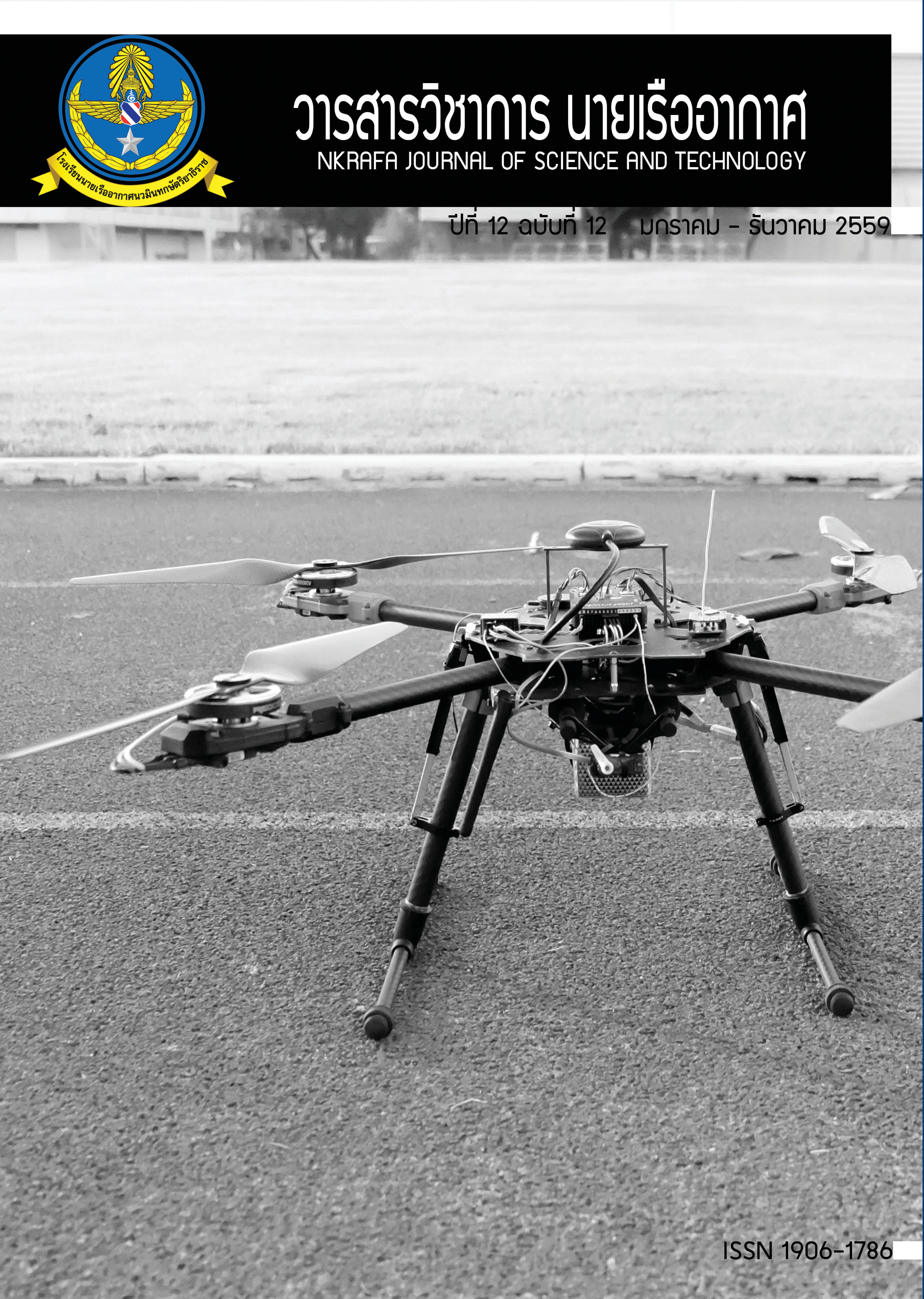Studies of Water Quality in Tha Din Dang Residential Area, RTAF
Main Article Content
Abstract
The main objective of this research is to systematically investigate the water quality of the oxidation ditches in Tha Din Dang district, Bangkok which are crucial because it can tremendously affect the health and happiness of residents, according to the RTAF specific policy on welfare which emphasizes on improvements in a residential area around the royal Thai air force base. The indicator are biochemical oxygen demand (BOD) and dissolved oxygen (DO) by analyzing a set of reliable data (from the years of 2013 to 2015) obtained from Sanitary Subdivision, Textile Division of Preventive Medicine, Directorate of Medical Services, RTAF. Based upon the key results, the BOD of the water samples reaches the standard (lower than 10 mg/L), excepting in the rainy season (23.8 mg/L). This might be resulting from the contamination of organic compounds. The DO of the samples is slightly below the standard; i.e., the good water should have 5 – 7 ppm of dissolved O2. This might be resulting from the increasing of organic compounds that render more oxygen use by microorganism. Hence, the potential solutions to overcome this problem are to increase an amount of O2 in the water in order to help microorganisms decomposing organic compounds by using an effective water circulation system, and to apply a natural method to improve the quality of water; e.g., raising naturally three local fish (tilapia) in one square meter can decrease the BOD because they will eat green algae or some other plants in the water.
Article Details
- Content and information in articles published in NKRAFA Journal of Science and Technology are comment and responsibility of authors of articles directly. Journal editorial do no need to agree or share any responsibility.
- NKRAFA Journal of Science and Technology Articles holds the copyright of the content, pictures, images etc. which published in it. If any person or agency require to reuse all or some part of articles, the permission must be obtained from the NKRAFA Journal of Science and Technology.
References
[2] กุศยา สุวรรณวิหค. วิทยาศาสตร์สิ่งแวดล้อม. กรุงเทพฯ: เอกสารประกอบการสอนนักเรียน นายเรืออากาศ ภาควิชาเคมี กองวิชาวิทยาศาสตร์ โรงเรียนนายเรืออากาศ กองบัญชาการฝึกศึกษาทหารอากาศ, 2540.
[3] กุศยา สุวรรณวิหค. การจัดการสิ่งแวดล้อมและการประยุกต์ใช้ทางการทหารและอากาศยาน. กรุงเทพฯ: เอกสารประกอบการสอนนักเรียน นายเรืออากาศ ภาควิชาเคมี กองวิชาวิทยาศาสตร์ โรงเรียนนายเรืออากาศ กองบัญชาการฝึกศึกษาทหารอากาศ, 2546.
[4] กุศยา สุวรรณวิหค. แนวทางการจัดการปัญหามลพิษของกองทัพอากาศตามหลักปรัชญาเศรษฐกิจพอเพียง. วารสารเรืออากาศวิชาการ, 10(10): 31-42 2557.
[5] “แนวทางแก้ไขปัญหาระบบสุขาภิบาลและสิ่งแวดล้อมบริเวณบ้านพักอาศัย ทอ. ท่าดินแดง” รายงานการประชุมคณะกรรมการสิ่งแวดล้อม ทอ.” 2551.


